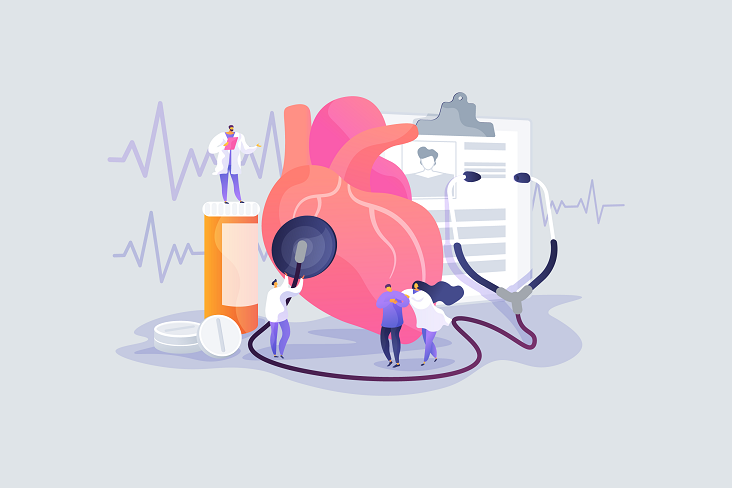
DM - Cardiac Intensive Care
- 1 Colleges
Cardiovascular Intensive Care is the special and systematic treatment of patients with severe cardiovascular diseases (CVD)..
Cardiovascular Intensive Care is the special and systematic treatment of patients with severe cardiovascular diseases (CVD). The diseases include coronary artery diseases (CAD) such as angina and myocardial infarction, cardiomyopathy, myocarditis, heart arrhythmia, hypertensive heart disease, aortic dissection, aortic aneurysm, and so on. As such diseases are some of the leading causes of death in the world, Cardiovascular Intensive Care units have been developed in several hospitals across the globe to reduce mortality rates. Doctor of Medicine in Cardiac Intensive Care is a relatively new course that combines specialization in cardiology with expertise in critical care medicine. The development of Cardiac Intensive Care units in the mid-twentieth century was a major advance in cardiology practice. Being a relatively new course means research is somewhat lacking in the field but several advancements have been made in recent years. SHOCK trial, temperature management for patients with out-of-hospital cardiac arrest, and left ventricular assist device implantation for those patients with end-stage heart failure are just a few important examples. Technological advancements in therapeutic equipment such as the defibrillator, pacemaker, non-invasive ventilator system, temperature management system, have also occurred. Dedicated students could pursue research in the fields of health service research, medication strategies, data monitoring, and analysis through artificial intelligence, monitoring systems, and so on.
The patients in the Cardiac Intensive Care Unit (CICU) often have various complications such as respiratory failure and renal failure. Hence, the doctors who work at CICU are required to have the ability to practice systemic intensive care. The lack of a structured course to train doctors in cardiac surgical intensive care has been crippling until now. Students of the course will be trained in routine intensive care (arterial blood gas interpretation, vascular cannulation, cardiopulmonary resuscitation, sepsis, hemodynamic management, tracheostomy, ultrasonography, echocardiography, bronchoscopy, intercostal drain insertion, emergency management, management of myocardial infarction, to name a few as well as advanced critical care support solutions (extracorporeal membrane oxygenation, VAD management, and heart transplantation). The syllabus includes but is not limited to General sciences such as anatomy and physiology, general medicine, cardiology, blood bank, mechanical ventilation, and management of patient on ventilator, basics of monitoring, Interpretations, and investigations. Detailed training in critical care anesthesia is required which includes the concept of ICU care, criteria for admission and discharge, recognition of warning signs, management and treatment of critical illness, treatment algorithms for cardiovascular emergencies, antibiotic applications, heart transplant, and so on. Candidates completing this course will have the composite knowledge of cardiac surgery, anesthesia, and intensive care. They are expected to have obtained skills such as BLS, intubation, clinical assessment of vital organ function, Monitoring of cardiac arrhythmias and ischemia /infarction with continuous ECG, and so on. Doctors specialized in cardiac intensive care would have responsibilities such as maintaining logbooks, maintenance of ventilatory charts, and effectively communicate with families of patients. Publication of research in national or International journals is desirable during training.
The duration of the course is three years. Candidates can apply after their post-graduation in Anesthesia, Medicine, Pulmonary medicine, or Pediatrics. With the increase in the number of cardiac centers, ECMOs per year, and progressive increase in heart transplantations, we must have a trained workforce to manage patients in the cardiac surgical ICUs. Hence doctors after the completion will find themselves in high demand in general hospitals, super specialties, or research facilities for therapeutic technologies. The prosperity of the field now depends on novel minds that venture here.
